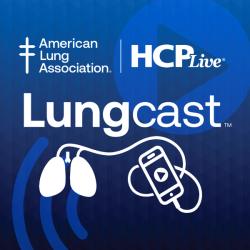
OR WAIT null SECS
Lepodisiran, ALPACA, and Lp(a), with Steve Nissen, MD
Steve Nissen, MD, discusses the phase 2 ALPACA trial and how it informs the potential of lepodisiran for lowering Lp(a).
The ALPACA trial demonstrated lepodisiran, a long-acting small interfering RNA therapy, significantly and durably reduces lipoprotein(a) [Lp(a)] levels, with effects lasting up to 18 months.
Findings were presented at the American College of Cardiology (ACC) 2025 Annual Scientific Sessions, with Eli Lilly and Company announcing the therapy’s progression to the phase 3 ACCLAIM-Lp(a) trial.
“Nearly a quarter of the world’s population has elevated Lp(a), increasing cardiovascular risk, yet no approved therapies exist,” said Steve Nissen, MD, chief academic officer of the Heart Vascular & Thoracic Institute at the Cleveland Clinic. “These findings suggest siRNA approaches like lepodisiran could offer durable benefits with long-term dosing.”
Conducted across 66 sites on 5 continents, ALPACA randomized 320 patients with elevated Lp(a) to receive placebo or one of several lepodisiran regimens. The primary outcome of the trial was time-averaged percent change in Lp(a) from day 60 to 180. Results suggested patients receiving lepodisiran achieved reductions of 40.8%, 75.2%, and 93.9% for the 16 mg, 96 mg, and pooled 400 mg dose groups, respectively.
Additionally, those receiving 400 mg at baseline and day 180 maintained a 74.2% reduction in Lp(a). Secondary outcome analyses revealed the 400 mg group also experienced sustained reductions in apolipoprotein B, with decreases of 14.1% at day 60 and 13.7% at day 180.
Safety data showed treatment-emergent adverse events in 1% of placebo recipients, 3% of the 16 mg group, 12% of the 96 mg group, and 14% of the 400 mg group. No serious adverse events were linked to lepodisiran, though one death occurred in the 16 mg group due to chronic coronary disease complications.
For more on the trial and its implications, check out our interview with principal investigator Nissen.
Relevant disclosures for AbbVie, Inc., Amgen, arrowhead, Astra Zeneca, Bristol Myers Squibb, Eli Lilly, Encarda, Esperion Therapeutics, Medtronic, Mineralys, New Amsterdam Pharmaceuticals, Novartis, and Silence Therapeutics.
References:
Nissen SE, Ni W, Shen X, et al. Lepodisiran — A Long-Duration Small Interfering RNA Targeting Lipoprotein(a). New England Journal of Medicine. Published online March 30, 2025. doi: 10.1056/nejmoa2415818
Eli Lilly and Company. Lilly’s lepodisiran reduced levels of genetically inherited heart disease risk factor, lipoprotein(a), by nearly 94% from baseline at the highest tested dose in adults with elevated levels | Eli Lilly and Company. Eli Lilly and Company. Published March 30, 2025. Accessed March 30, 2025. https://investor.lilly.com/news-releases/news-release-details/lillys-lepodisiran-reduced-levels-genetically-inherited-heart


